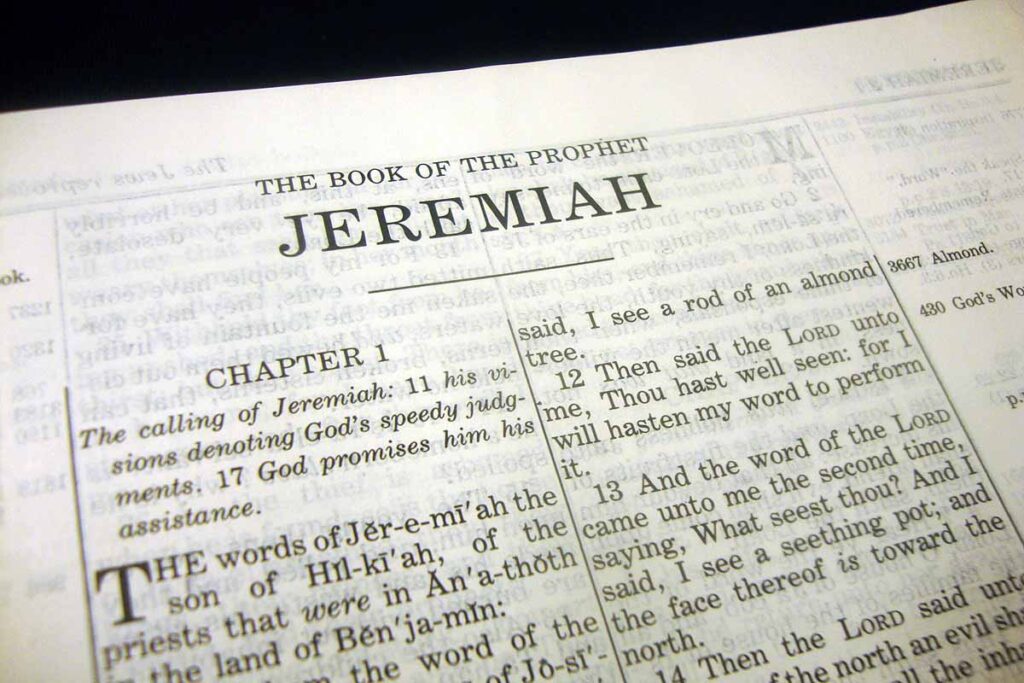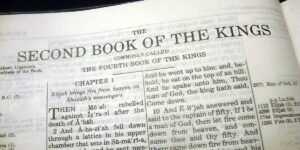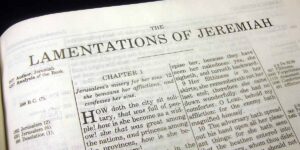Jeremiah confronts many people with their sins: kings, false prophets, those at the temples, and those at the gates. A lack of response made Jeremiah wonder if he was doing any good at all. He often felt discouraged and sometimes bitter. To bring such gloomy messages to these people was a hard task. We too have a responsibility to bring this news to a fallen world: those who continue in their sinful ways are eternally doomed. Although we may feel discouraged at the lack of response, we must press on to tell others about the consequences of sin and the hope God offers. Those who tell people only what they want to hear are being unfaithful to God’s message.
Jeremiah lived to see many of his prophecies come true – most notably the fall of Jerusalem. The fulfillment of this and other prophecies against foreign nations came as a result of sin. This who refuse to confess their sin brings judgment upon themselves.
The basic theme of Jeremiah’s message is simple: “Repent and turn to God, or he will punish.” But then, because the people rejected his warning, Jeremiah moved to predicting, specifically the destruction of Jerusalem.
As you read Jeremiah, feel with him as he agonizes over the message he must deliver, pray with him for those who refuse to respond to the truth and watch his example of faith and courage. Then commit yourself to be successful in God’s eyes.
Writer of Jeremiah
Determining the authorship of the book of Jeremiah is complicated by several factors: the variety of types of literature found in the book, the differences between the Hebrew and Greek versions of the book, and the difficult lives Jeremiah and his scribe Baruch lived. However, these complications described do not make it impossible for the contents of the book to be Jeremiah’s words, as the Bible says they are (Jeremiah 1:1)
Date Written
It is impossible to know exactly when the book of Jeremiah reached its final form. Jeremiah certainly died within a decade or two of the last events recorded in the book, and the same is likely true of Baruch. Thus, the book was probably composed by 550 B. C.
To Whom Written
Judah (the southern kingdom) and it’s capital city, Jerusalem.
Historical Setting of Jeremiah
The book of Jeremiah belongs to a chaotic time in the history of God’s covenant people. Jeremiah’s native land, the southern kingdom of Judah, was caught in a power squeeze between three great powers of the ancient world: Egypt, Assyria, and Babylon.
Theological Contribution
Jeremiah’s greatest theological contribution was his concept of the new covenant. A new covenant between God and His people was necessary because the old covenant had failed so miserably.
Special Consideration
Jeremiah was a master at using figures of speech, metaphors, and symbolic behavior to drive home his messages. He carried a yoke around his neck to show the citizens of Judah they should submit to the inevitable rule of the pagan Babylonians. He described a potter who marred a piece of clay, then reshaped it into a perfect vessel to teach submission; he purchased a plot of land in his hometown to symbolize his hope for the future.
Click here to download or print the Bible outline “Jeremiah – Turn Back to God“





